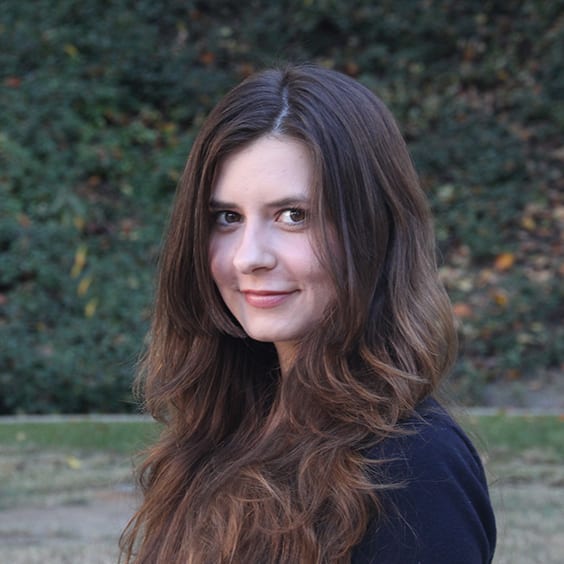
USC PhD student Ruzanna “Rose” Shkhyan has gotten a first-hand look at how stem cell discoveries can lead to clinical trials. As member of the USC Stem Cell laboratory of Denis Evseenko, she contributed research that led to the development of a therapeutic agent that can modulate inflammation, which will be in a clinical trial in early 2021 to treat osteoarthritis.
“My studies uncoupled degenerative versus regenerative functions of pro-inflammatory signaling in osteoarthritis, and how this chronic, low-grade inflammation can be modulated by molecular, genetic, and pharmacological approaches,” she said.
Shkhyan has dreamed of a career in the medical sciences since she was a child. Born in Moscow and raised in Los Angeles, Shkhyan recalls her love of biology lab in high school.
“I can still hear my teacher shouting at us during a rat dissection, and saying ‘Don’t touch the spleen! Don’t touch the spleen!’ From then on, I wanted to touch a rat spleen,” she said.
Shkhyan’s mother and grandfather also played influential roles in her passion for medicine. Her grandfather’s multiple heart attacks and eventual transplant caused Rose to consider the constraints of medical intervention. She recalls wondering, “Why is the only way to have a functioning heart after damage is by getting a new one? Why can’t a damaged heart somehow regenerate and regain its full function?”
Shkhyan went on to earn her bachelor’s degree in biology from UCLA. Shkhyan’s mother, who also worked in medicine, encouraged Rose to apply to medical school after college. Shkhyan, however, felt she could contribute more to alleviate human suffering as a research scientist, compared with a clinical doctor treating one patient at a time.
Shkhyan worked in a cancer research lab and later in Evseenko’s lab at UCLA. When he moved to USC from UCLA, Rose came, too, and decided to pursue her PhD.
“Getting accepted as a student is a great honor,” she said. “I knew that USC had a lot of programs focusing on biomedical sciences and opportunities for growth, so it seemed like a perfect place. Most importantly, I wanted to stay in Denis’ lab.”
Shkhyan’s research focuses on inflammation’s role in age-related diseases. Chronic, low grade inflammation, called “inflamm-aging,” gives rise to a number of age-dependent pathologies, including osteoarthritis. While a sustained inflammatory state can be very detrimental, inflammation is also responsible for triggering regenerative processes in the body.
Shkhyan is inspired by the “quest for innovation” involved in lab research, and applies the same creative passion to her hobbies in the arts, which include singing and ballroom dancing.
“If I did not pursue a career in science, I would have loved to become a professional singer,” she said.
Science and the arts have a lot in common: discipline, attention to detail, and the vision to push beyond accepted dogma.
“Rose is one of those very rare people who combine exceptional level of punctuality and ‘get it done’ attitude with a very creative mindset and ability to plan their work strategically,” said Evseenko, who is an associate professor of orthopaedic surgery, and stem cell biology and regenerative medicine at USC. “This unique combination of professional and personal characteristics makes her very productive and well-integrated in research projects of any level of complexity.”
Shkhyan envisions her future research in finding treatments for age-related diseases and improving healthy longevity. She intends to continue her work on inflammation, osteoarthritis and other age-related diseases such as atherosclerosis, and to help expand the Evseenko Lab’s clinical therapies beyond osteoarthritis treatments.
